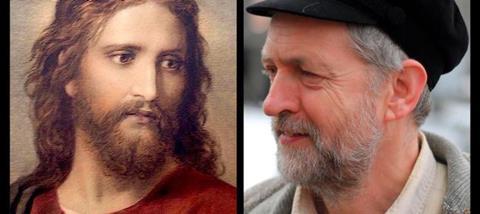
Jeremy Corbyn’s re-election as leader of the Labour Party on Saturday with an even bigger vote was predictable. Since his election in 2015 the party’s membership has leapt from 22,000 to 515,000, many of whom would have joined to ensure Corbyn’s re-election. Add to this number the support of most of the larger trade unions and one sees a movement for a more socialist Britain along the lines advocated by their leader. Evidence of this will come on Monday when the Shadow Chancellor, John McDonnell promises that a future Labour Government will intervene in the free market to establish an economy and society that reflects socialist goals and values.
Corbyn’s critics, who include a majority of his own parliamentary party, will say that all this is pointless rhetoric if Labour fails to be elected in 2020. Former leader Neill Kinnock expressed this when he said he did not expect to see another Labour Government in his lifetime.
But what Corbyn’s critics have failed to understand is that he doesn’t see parliament as the route for achieving the radical changes he seeks. He sees the parliamentary route as one that merely ameliorates the damage that capitalism does to the poor and powerless masses. Corbyn almost certainly knows that he is unelectable - and he couldn’t care less. He and his supporters see parliament as irrelevant.
Jesus started a mass movement too. It was opposed by the established parties of the day – the Sadducees and Pharisees – and by the Roman Empire. History records how that movement, the Church, swelled and spread across southern Europe and is now found in every nation in the world, even where it is persecuted. Yes, its influence in Britain and Europe has waned today, but many would say that is precisely the result of becoming wedded to power over time. While it existed outside the establishment, the early church was unstoppable.
Likewise, Corbyn’s revolution is about a mass movement committed to radical change. This vision reflects a Marxist approach to politics and is backed by several small Marxist-Trotskyite parties whose members have helped to swell Labour party membership this year because they see this as their best chance of achieving their aims.
Before sceptics write this off as an unworkable strategy they should reflect on the success of UKIP, with just one MP, in achieving the Referendum result despite the opposition of all the other established parties. The political establishment opposed Brexit but the people voted for it so the Government had to listen and act accordingly. This is Corbyn’s model of mass movement democracy.
The difference between Christ’s and Corbyn’s movement is that (if it needs stating) the Labour leader is not Christ and his first priority probably isn’t for God’s will to be done on earth as in heaven. That’s equally true of all our political leaders. But just as the 1st Century rulers could never have foreseen what a bunch of ragtag follower with claims of a risen messiah would amount to, so the powers-that-be today have vastly underestimated what Corbyn and his movement would achieve.
Whatever our political sympathies may be we need to heed St Paul’s urging that we pray for all those in authority so that we get good Government for all the people. Corbyn is not the new Messiah but his movement could still surprise us yet.
Click here to request a free copy of Premier Christianity magazine




























